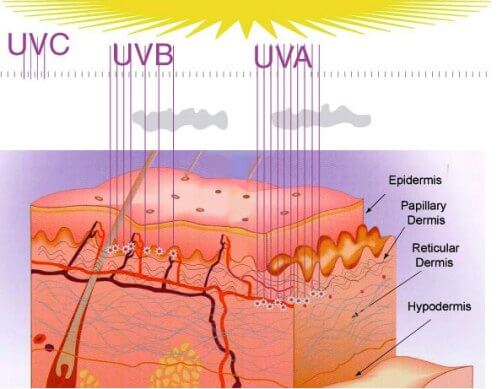‘NONO’ says yes for repairing DNA damage induced by UV radiation
Source: Biotechin.asia, May 2015

Major risk for skin cancer is ultraviolet (UV) exposure. In scientific terms, when cells respond to UV radiation, they induce DNA damage by activating different ‘checkpoints’ of the cell cycle, which in turn halts and activates DNA repair pathways.
Researchers at the Temple University in Philadelphia recently identified a new role of ‘NONO’ in DNA damage. NONO is a 54-kDa multifunctional protein (in response to UV radiations) involved in melanoma (skin cancer) development and progression. Interestingly, NONO is mutated in several tumour types and is a crucial factor for both melanoma development and progression. Thus, scientists set out to evaluate whether NONO could be involved in the DNA-damage response to UV radiations.
According to this recent study, scientists “created NONO-silenced HeLa cell clones and found that lack of NONO decreased cell growth rate”. They then challenged NONO-silenced cells with exposure to UV radiations and showed that NONO-silenced cells compared to control cells, continued to synthesize DNA, failed to block new origin firing and impaired checkpoint kinase 1 (CHK1S345) phosphorylation showing defective checkpoint activation (more details in the publication).
Their study provides an important missing link which contributes to further dissecting the complex cascade of events that orchestrate the cellular response to DNA damage, said Luigi Alfano who is the first author of the study. The study shows that silencing NONO impairs cancer cell response following exposure to UV radiations.
Considering that many studies are identifying NONO alterations in cancer, these findings will likely help to shed light on the molecular mechanisms of tumorigenesis, particularly in melanoma.
This work also provides preclinical framework supporting the development of new agents targeting NONO that could be used to sensitize cancer cells to a variety of drugs that cause DNA damage, such as common chemotherapy agents, explained Francesca Pentimalli, co-corresponding author of the study.
Taken as a whole, their data exposed a new role for ‘NONO’ in mediating the cellular response to UV-induced DNA damage. This study was published in the journal Oncogene.
